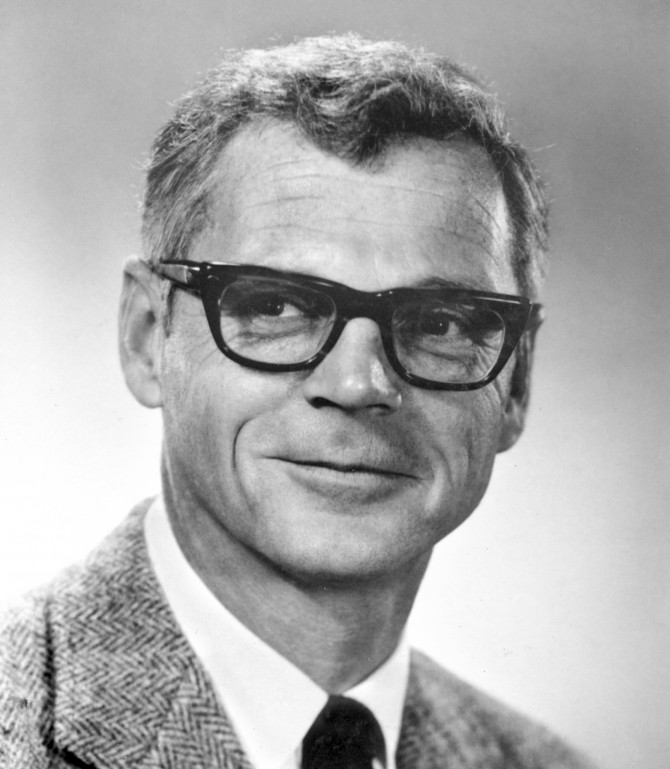Herbert Schryver, horse nutrition expert, dies at 89
By Krishna Ramanujan
Herbert Schryver, DVM '54, an emeritus professor with expertise in veterinary pathology, equine nutrition and biomechanics, died June 26 at the age of 89 in Ithaca.
During his tenure at Cornell, Schryver served as a professor of veterinary pathology and nutrition in the Department of Clinical Sciences in the College of Veterinary Medicine and in the Department of Animal Science in the College of Agriculture and Life Sciences. He was also a former director of the Equine Research Program.
"He was a great scientist and a kind person," said Norm Durcharme, the James Law Professor of Surgery in the Section of Large Animal Surgery in the College of Veterinary Medicine and medical director of the Equine and Nemo Farm Animal Hospitals.
Schryver was Born in Brooklyn, New York, in 1927. He served in the U.S. Army from 1946-47 and graduated with a B.A. from Hofstra University in 1951. He went on to get his DVM degree from the New York State College of Veterinary Medicine at Cornell in 1954 and a Ph.D. in experimental pathology at the University of Pennsylvania in 1964. After receiving his degree, he was hired as an assistant professor of veterinary pathology. In 1966, he left Pennsylvania and joined Cornell's faculty as an associate professor of pathology and director of the newly established Equine Research Program.
At Cornell, he studied nutrition in horses, as well as aspects of physiology - such as growth, pregnancy, lactation and exercise - that influence horse nutrition. His studies included the metabolism and nutritional importance of such minerals as calcium, phosphorus, sodium, zinc, copper and magnesium. This research led to estimates of the dietary needs of these elements in horses of different ages and physical activity.
He also studied the biomechanics of locomotion, developing a mathematical model with faculty at the College of Engineering to calculate the physical forces on the lower forelimbs of horses at different gaits. His biomechanics research led him to investigate the roles of diet and exercise on bone strength in horses, as well as the effects of electrical stimuli on healing of bone fractures.
While at Cornell, Schryver travelled to the Karolinska Institute in Stockholm, Sweden, where he served as a visiting scientist in orthopedic surgery from 1971-72. He was also a fellow in biomechanics at Weill Cornell Medicine's Hospital for Special Surgery from 1979-1980.
He was a member of the American Institute of Nutrition, the American Society of Animal Science and the American Veterinary Medical Association, and he was a charter diplomat of the American College of Veterinary Nutrition.
Schryver retired from Cornell in 1990. He is survived by his widow, Elisabeth, and two sons.
Media Contact
Get Cornell news delivered right to your inbox.
Subscribe